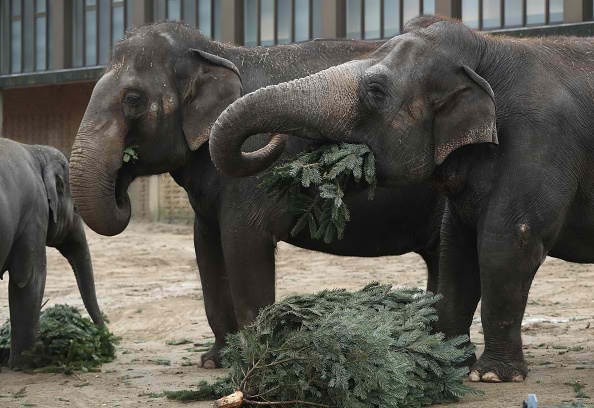The Zimbabwe Parks and Wildlife Management Authority (Z.P.W.M.A.) confirmed that there was a sale of 35 elephants from the Zimbabwe wildlife reserve to China last December.
According to Caroline Washaya-Moyo, spokesperson of the Z.P.W.M.A., Zimbabwe will use the money raised by exporting elephants to China for wildlife protection.
Washaya-Moyo explained that the processes involved in transportation were in accordance with the Convention on International Trade in Endangered Species of Wild Fauna and Flora (C.I.T.E.S.) which ensures the safety of transport of live animals.
The wildlife reserve in Zimbabwe has a current capacity of holding 15,000 elephants but is now over-capacitated with 83,000 elephants. Exporting them will slacken the pace of the growing herd and help other areas with small herds.
The administrators of the African wildlife reserve made an inspection in China before the deal was finalized.
"We are very satisfied with the places which will be the future home for those elephants," said Caroline Washaya-Moyo.
Hua Chunying, the spokesperson for the Ministry of Foreign Affairs, said: "It's been international practices for a wildlife park to import wild animals abroad. Technologies related to a wildlife park in China have reached to an international level. We can take good care of those imported African elephants and help improve the publicity of African elephants' protection."
However, environmentalists disagree with the manner of transportation that was done with the elephants. They said that the transport of the animals increased the risk of dying during the process.
"Everything is wrong with elephant exports starting from the welfare perspective," said Daniela Freyer of the German-based conservation group Pro Wildlife.
She added: "But also the conservation aspects are really important. There is a high mortality rate during capture and in transport and in captivity. It is morally not acceptable and not sustainable."



























